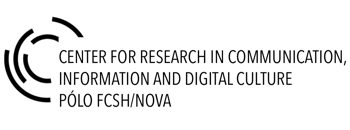Universidade Católica Portuguesa, Lisbon, Portugal (6-7 October 2017)
The ongoing process of mediatization is increasingly fuelled by the datafication of everyday life, the globalization of media systems, and the digitalization of social institutions and practices. This includes the digitization of old, and the upcoming of new digital media and platforms. The changes in media production, distribution and consumption, which resulted from digitization, have restructured various social, cultural, economic and organizational boundaries. Previously separated media sectors, often based in national contexts, are now interlinked; institutional and cultural boundaries have been shifting in interrelation with media-communicative changes; and also public-private boundaries are constantly being challenged.
The global nature of these ongoing processes also calls for comparative studies between different countries and regions as well as international theoretical development. Latin American and European perspectives on mediatization have evolved from different theoretical traditions and empirical realities; this workshop will also encourage a dialogue between Latin American and European researchers regarding both empirical and theoretical work.
This conference encourages submissions related to these changing boundaries, and includes, but is not restricted to, the following themes:
– Boundaries between traditions of mediatization theory
– Data retention and public/private boundaries
– Digital platforms and cultural boundaries
– Changes in cultural flows
-Data and business: global perspectives
– Relations between Latin American and European perspectives on mediatization theory
– Changes in institutional cultures
– Methodological challenges and benefits of datafication/digitization
-Mediatization between disruption and gradual transformation
– Digital media and changing boundaries between work and leisure, between professional and personal communication
– Avoidance of and resistance against media- and data-related change
– Digitization and further time-space distanciation or reconfirmation of boundaries and retreat into the local
Abstracts should be 300 words
Abstract submission deadline: April 15, 2017
Acknowledgment of acceptance: May 15, 2017
Contact person with email address:
Göran Bolin & Rita Figueiras (goran.bolin@sh.se – ritafigueiras@fch.lisboa.ucp.pt)
More infor.: https://cecc-fch-ucp.wixsite.com/mediatization2017/call-for-applicants
